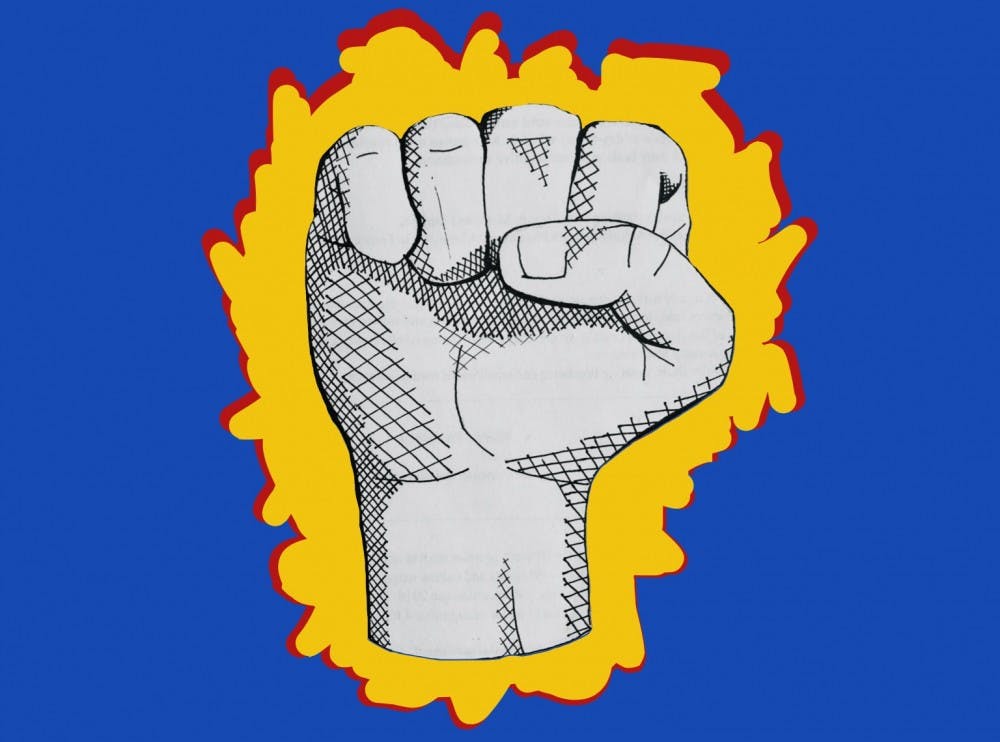I have admittedly lied to countless people. When someone asks how long ago I moved from Venezuela, it seems that with every passing year, I deduct two from my time in the United States. It has officially been 12 years as of Aug. 21, and I promise that’s the truth.
But when asked where I’m from, I present myself as singularly Venezuelan—no American interlude. It is my friends who would always find a way to correct my “error” and inform the public that I had, indeed, lived in New York.
Truthfully, this led to where I am today, an institution that would likely be out of reach had I remained in Venezuela during my years in middle school and high school. New York is an electric city that offered a bounty of new friends and opportunities coupled with an unparalleled education.
When I first moved here, each passing week felt like a blur. As the weeks turned into months and the months into years, each day became a little harder. Friendships became strained, my previously ever–present family was limited to holidays, and the box filled with Venezuelan snacks was starting to become increasingly barren. But the distance between New York and my home country never bothered me as much as it does now: given the country’s dangerous state, this distance has made me powerless.
The situation in Venezuela has been worsening since 2014. The decline in the price of oil caused the glamour of the dictatorship to fade. The economy took a sharp decline, the rates of crime and malnutrition grew, inflation was growing in an unprecedented manner, the education system was tainted by the hands of the government, the corrupt were voraciously devouring the country’s money, the drug trade was omnipresent, and government–created socialist institutions were unwilling or unable to help.
During the protests that took place in April of 2017, I wanted to contribute. I wanted to be present handing out arepas with my friends and family to the students risking their lives for a better tomorrow. I wanted to visit Ramo Verde, the jail filled to the brim with wrongly incarcerated political prisoners. My grandmother would visit weekly with care packages for the prisoners and their families. I wish I could’ve gone with her. I wanted to fight against the state that incarcerated a family member upon privatizing the banking industry. I hoped to alter the course of my cousin, suffering from Lennox–Gastaut Syndrome, who does not have access to the necessary medicine due to the desolate pharmacies and the government's refusal to allow foreign aid into the country. I sought to change the system that compensates capable and driven individuals with a mere $2 per month.
The truth is, I don’t know what the best course of action is to mitigate the deeply rooted evil that has seeped into the core foundations of my beloved country. There are greater forces at play that further complicate the situation; a power play between the United States and Russia for the contraction, or the expansion of communism in the region; the influences of Hezbollah and other terrorist organizations through the Vice President, Tareck El Aissami; a decimated economy, and the astounding levels of corruption and drug trade, to name a few.
What I do know is that education is the best course of action for our situation. The education of ourselves as well as others—at all costs. It is a time for all—immigrants, citizens, residents, non–Venezuelans—who wish to support, to come together and discuss. It is not a time to silence or exclude certain points of view, but to allow all perspectives to reach a bountiful conversation that catalyzes the spread of information, personal stories, and plights of our country.
I pray every day for a change in my country, and from far away continually strive to contribute as much as I can. This includes simple acts, such as calling my grandmother who is living in a constant state of fear, voting from abroad, or informing those around me about the state of affairs as often as I can. This also includes partaking in fundraising efforts through Wharton Latino, Despacito LLC, and donating to organizations. I will never stop trying to find ways to share my little grain of sand, never stop trying to educate myself in order to find more ways to give back and continue the conversation.
My story is one of tremendous privilege that I am incredibly lucky to be living. While there have been sacrifices, they do not compare to those that are still there, enduring unimaginable hardships. It’s not the story of the mother who lost her baby to malnutrition, or the political prisoner who has been continually denied access to his constitutionally given right to family visits, or the father who goes from work to wait for four hours in line in order to buy government–rationed necessities, or the grandmother who has felt the pain of losing her grandson to drugs or violent crime. These are the people who keep me up at night; the main characters of my nightmares. What I do might never be enough, and it might never compare to how they—the real heroes—have contributed. But, I'm going to keep trying.
Emiliana is a senior in the College, studying Philosophy, Politics and Economics. She is a member of Venezuelans at Penn, an organization which provides aid to Venezuela through the NGO United Way, to which students can contribute by donating to @VenezuelaPenn on Venmo.







